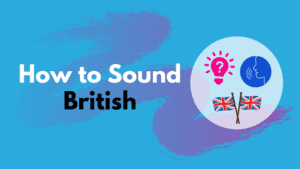5 Advanced Idioms for IELTS Speaking
👇 Take this lesson with you! 👇
In this lesson I’ll introduce you to 5 advanced idioms that can elevate your performance in the IELTS Speaking test. Additionally, I’ll answer some common questions students have about idioms.
Table of Contents
To fall on deaf ears
Meaning: When something you say is ignored or not acknowledged.
Sarah asked her kids to stop playing and focus on their homework. However, her request seemed to fall on deaf ears as they kept playing on their phones.
Usage Tip: Use this idiom when talking about advice, suggestions, or warnings that were ignored.

To twist your arm
Meaning: To persuade someone to do something they’re hesitant about.
I wasn’t keen on attending the party, but John twisted my arm and I agreed to go.
Usage Tip: This idiom is often used when someone convinces or persuades you to change your mind.
To put your cards on the table
Meaning: To be transparent about your feelings or intentions.
During the meeting, the manager encouraged everyone to put their cards on the table and share their genuine opinions about the project.
Usage Tip: This idiom is often used when revealing something significant or confidential.
To be part and parcel
Meaning: Something essential or integral to another thing.
Studying is part and parcel of being a student. You can’t escape it if you aim for high grades.
Usage Tip: Use this idiom when emphasising that one thing is a necessary component of another.

To be on the same page
Meaning: To agree or think similarly about something.
Before initiating the project, the team met to ensure everyone was on the same page regarding the objectives.
Usage Tip: This idiom is typically used when emphasising agreement or shared understanding among a group.
Common questions about idioms in IELTS
1. What is an idiom? Are phrasal verbs the same?
- He passed away last week = he died last week
- Let’s put off the meeting = let’s delay the meeting
The following are just literal
- Can you take out the rubbish?
- Please put away your toys now.
2. Why are idioms important?
Idioms are prevalent in spoken conversations. They add colour to language, make conversations engaging, and help in understanding various contexts, especially in movies and news broadcasts. I also think they can be so much fun. At the same time, they are tricky to use, so it’s essential to hear them multiple times before incorporating them into your speech.

3. How should I learn idioms?
While many resources group idioms by topic, the idioms given are actually often not useful to talk about that topic. For instance, try searching for idioms about food and you will find idioms like the following:
- Like two peas in a pod = to be very similar
- It’s a piece of cake = to be easy
These aren’t directly about food and don’t help you talk about food.
A much more useful idiom to talk about food might be
- To wolf something down = to eat something quickly
So, if I want to talk about food and let’s say my eating habits, I could say,
In the morning I am often in a rush, so I wolf down my breakfast and then head off for work.
This is why my new book and online course ‘Idioms for IELTS Speaking’ [Coming Soon!] has grouped together idioms that help you talk about different topics, not just give idioms with related words.
4. Which idioms should I learn for IELTS?
Choose idioms that are commonly used in spoken English. Avoid old-fashioned or moralistic proverbs as they might sound unnatural. Remember, while there are differences between British and American idioms, many are universally understood due to global media influence.
5. How to use idioms without sounding rehearsed
While using idioms can enhance your speech, it’s essential they fit the context. Examiners appreciate idioms that seem improvised and contextually appropriate. Always ask yourself if the idiom belongs in the sentence or if you’re forcing it.

Conclusion and final advice
To confidently use idiomatic expressions, you must familiarise yourself with their context. Listen to them in videos, podcasts, and read transcripts. The more you expose yourself to idioms in natural settings, the better you’ll become at using them.
Lastly, for those interested in diving deeper into idioms, stay tuned for details about my upcoming IDIOMS e-book and course!
Enjoy your learning and best of luck with your IELTS Speaking test!
Improve your Speaking Skills with this Free Course
Crack IELTS Speaking Part 1
Learn to Speak with Confidence in Part 1 of Your IELTS Test!
⭐️⭐️⭐️⭐️⭐️
‘It’s such a great course. I’ve learned so many usages for speaking part 1.’
Zu Htet





